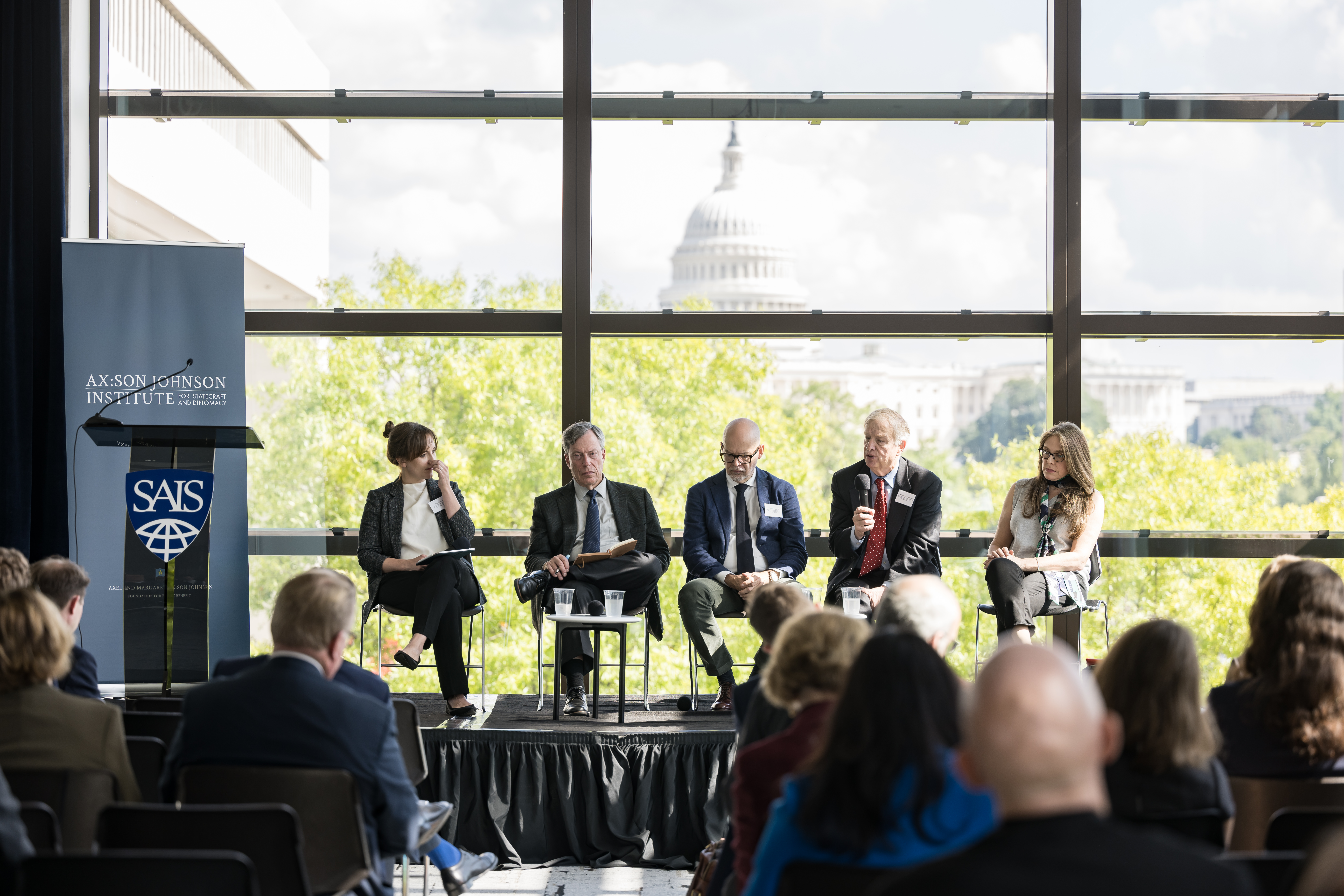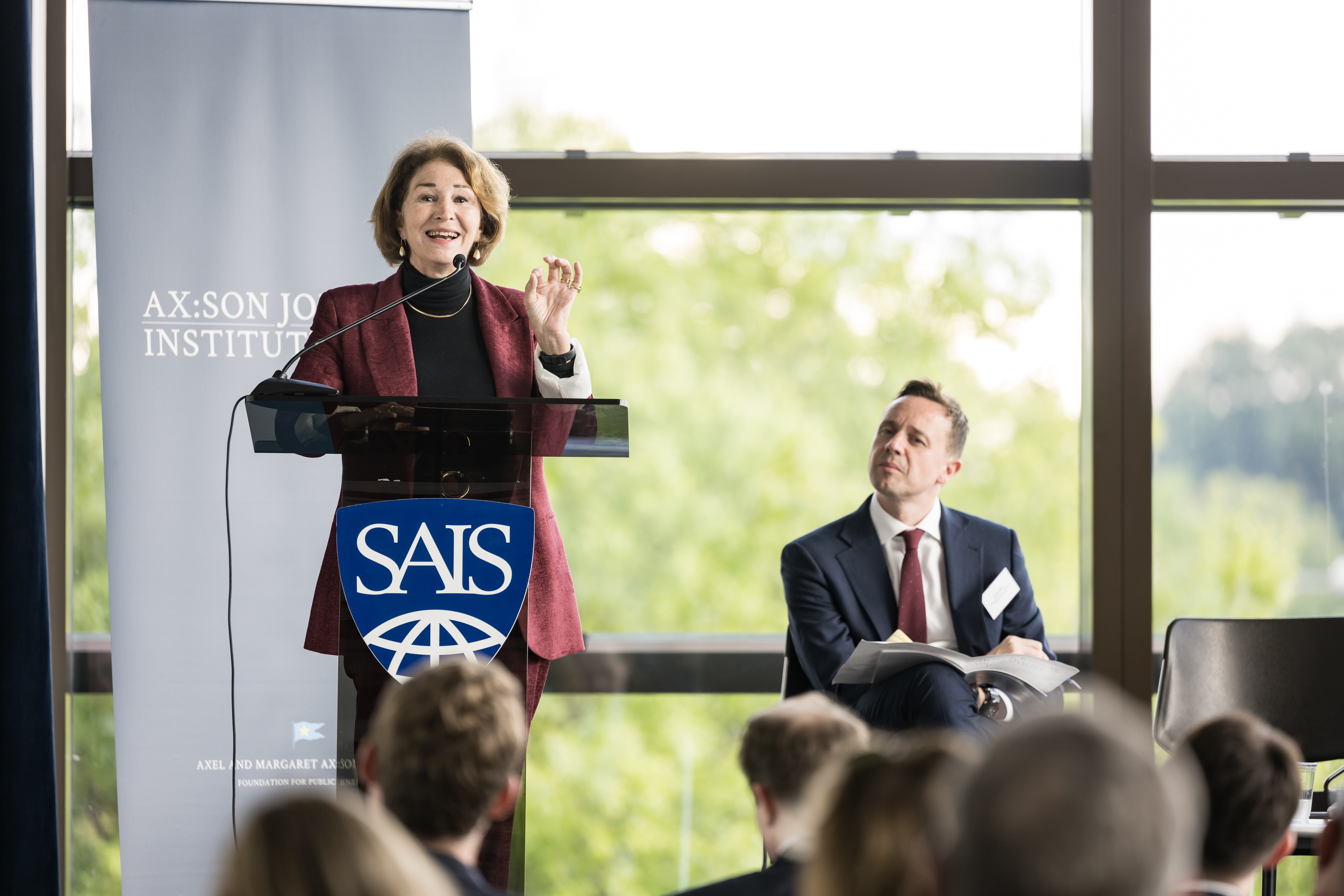Henry A. Kissinger and the Question of World Order Conference
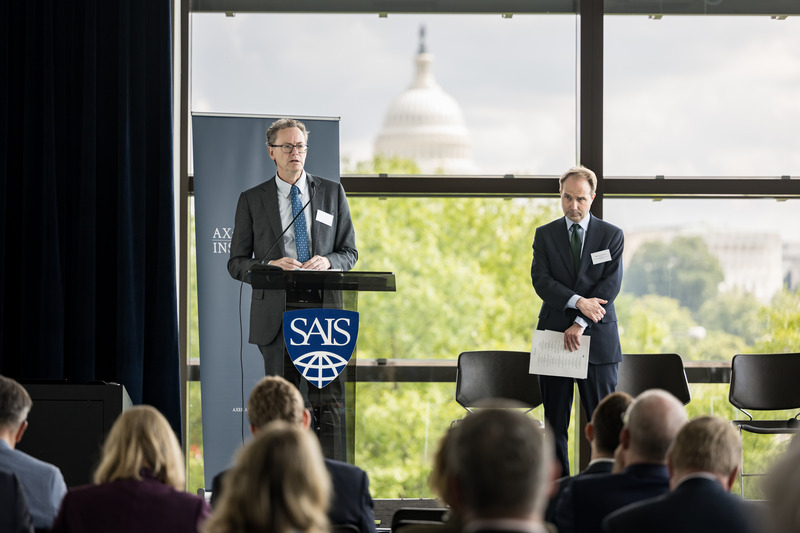
The Director for the Henry A. Kissinger Center for Global Affairs, Francis Gavin, and the Director of the Ax:son Johnson Institute for Statecraft and Diplomacy, Mattias Hessérus, open the conference “Henry A. Kissinger and the Question of World Order" on October 3rd, 2024.
On October 3rd and 4th, 2024, the Henry A. Kissinger Center for Global Affairs at the Johns Hopkins University School of Advanced Internatiional Studies (SAIS) and the Ax:son Johnson Institute for Statecraft and Diplomacy hosted a conference on Henry A. Kissinger and the Question of World Order. Prof. Francis J. Gavin, Director of the Kissinger Center, welcomed scholars and practitioners from around the world to Johns Hopkins SAIS’s Bloomberg Center to debate questions of history and the international system that Kissinger, as both a scholar and a statesman, had spent his life pondering.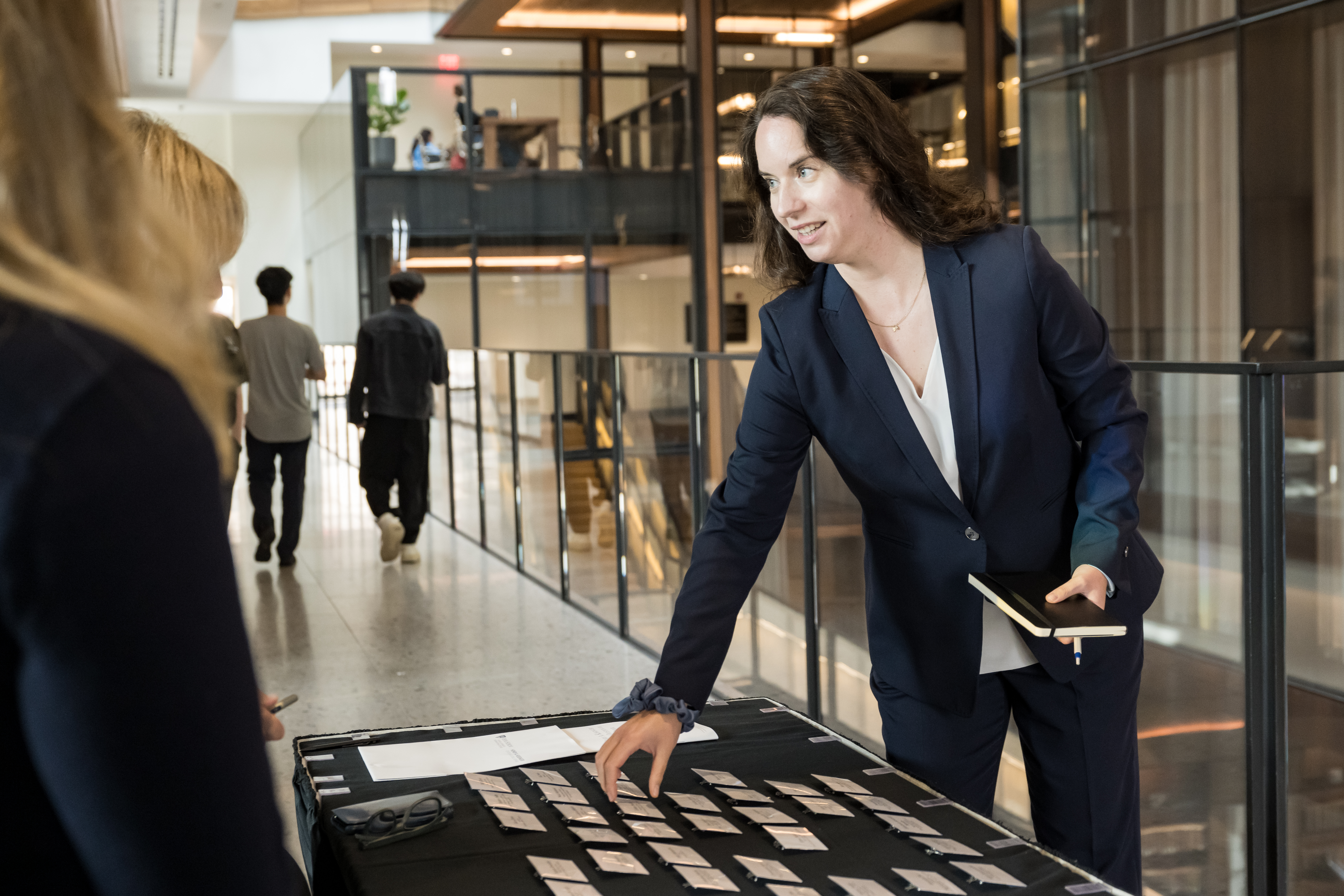
Conference registration begins and scholars including the Kissinger Center's Ax:son Johnson Institute postdoctoral and predoctoral fellows were invited to attend. The Center hosts vibrant academic life at SAIS for it's fellows to study critical issues of world order and grand strategy.
The conference commenced with a panel on The Benefits and Future of Applied History with Professor Fredrik Logevall (Harvard University), Professor Mary Sarotte (Johns Hopkins SAIS), Professor Thomas Schwartz (Vanderbilt University), and Professor Philip Zelikow (Hoover Institution, Stanford University). Moderated by Dr. Maeve Ryan (Department of War Studies), this session spoke on how policymakers learning from history was both inevitable and indispensable.
From left to right: Maeve Ryan (King's College London), Philip Zelikow (Stanford University), Frederik Logevall (Harvard University), Thomas Alan Schwartz (Vanderbilt) and Mary Sarotte (SAIS) speak in the first panel.
Next, Dr. Anne-Marie Slaughter (New America), Maria Langan-Riekhof (National Intelligence Council), James H. Baker (Office of Net Assessment), Richard Fontaine (The Center for New American Security), and Prof. John Bew (King’s College London) discussed World Orders and The Future of the International System. The panel evaluated the trajectory of the international system and the implications for global stability.
Anne-Marie Slaughter (New America) and John Bew (King's College London) speak in the second panel
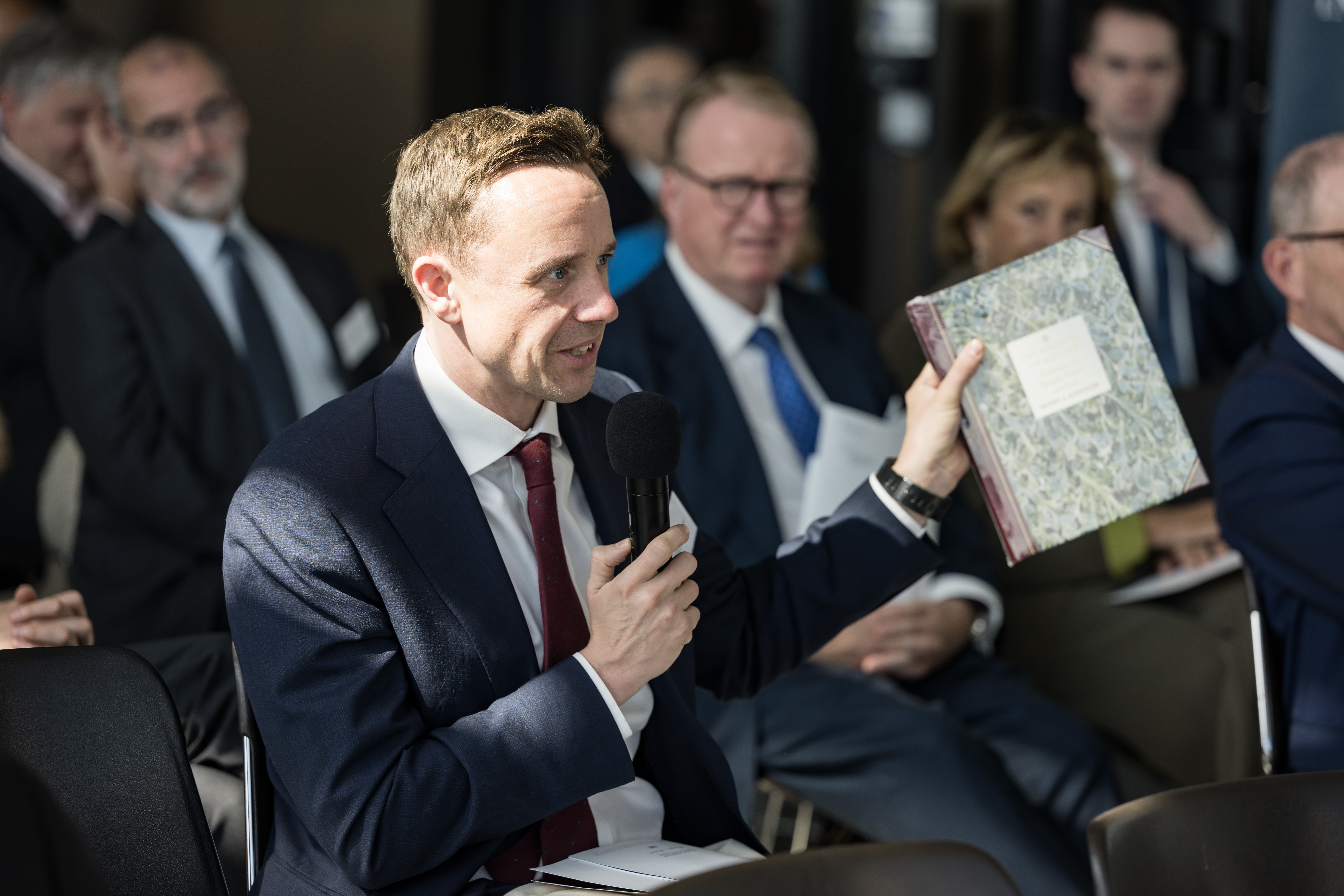
Bew also spoke about his work with the Kissinger Center on publishing Dr. Kissinger's undergraduate thesis, The Meaning of History: Reflections on Spengler, Toynbee and Kant. In March 2022, the Kissinger Center distributed the first print edition of Dr. Kissinger's thesis to the leading 100 university libraries across the world.
The conference was then honored to welcome National Security Advisor Jake Sullivan, who delivered a keynote talk in conversation with SAIS Dean James B. Steinberg to close day one of the conference.
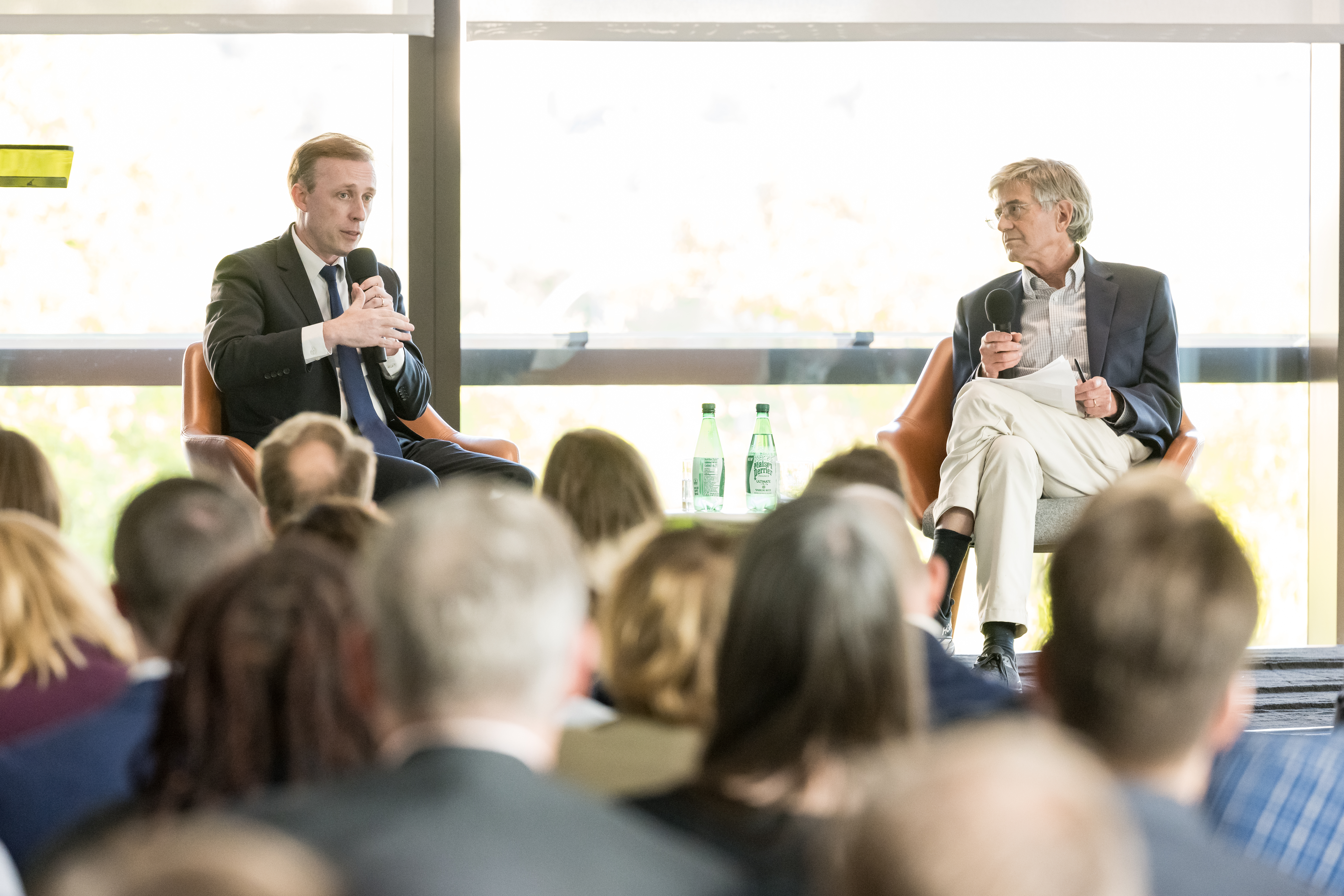
In addition to delivering the keynote talk, National Security Advisor Jake Sullivan is a member of the Kissinger Center's program: America and the Future of World Order Project. The study group, who's Honorary Chairman was Dr. Kissinger, convened a small group of leading thinkers to discuss how the United States should craft grand strategy in a changing international system.
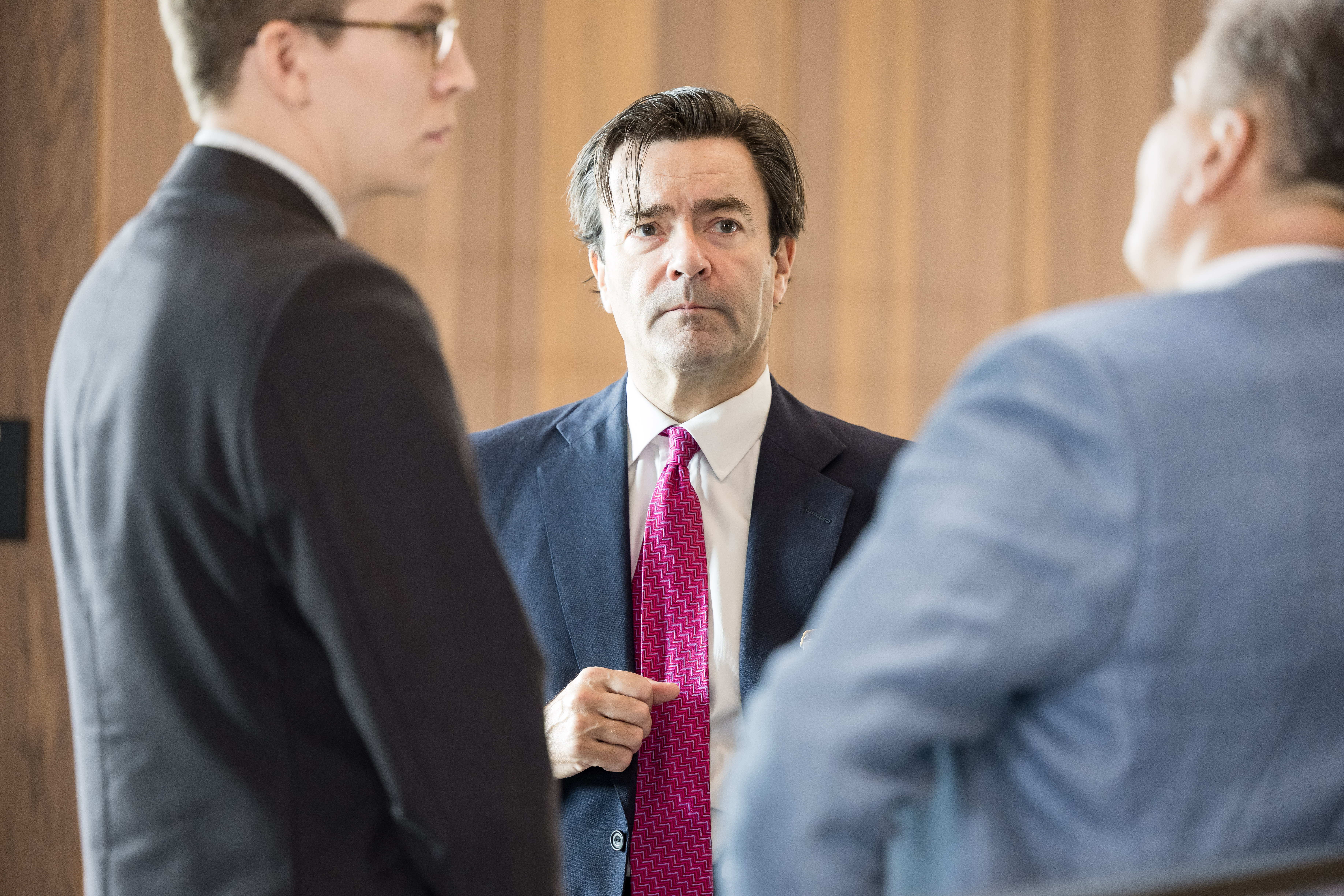
Editors from Engelsberg Ideas, published by the Ax:son Johnson Foundation, also hosted a podcast with various participants. Ax:son Johnson Institute fellows, including those at the Kissinger Center, regularly publish articles on their research in Engelsberg ideas for a wider audience interested in history, geopolitics and questions of world order. Editors for the outlet are pictured here.
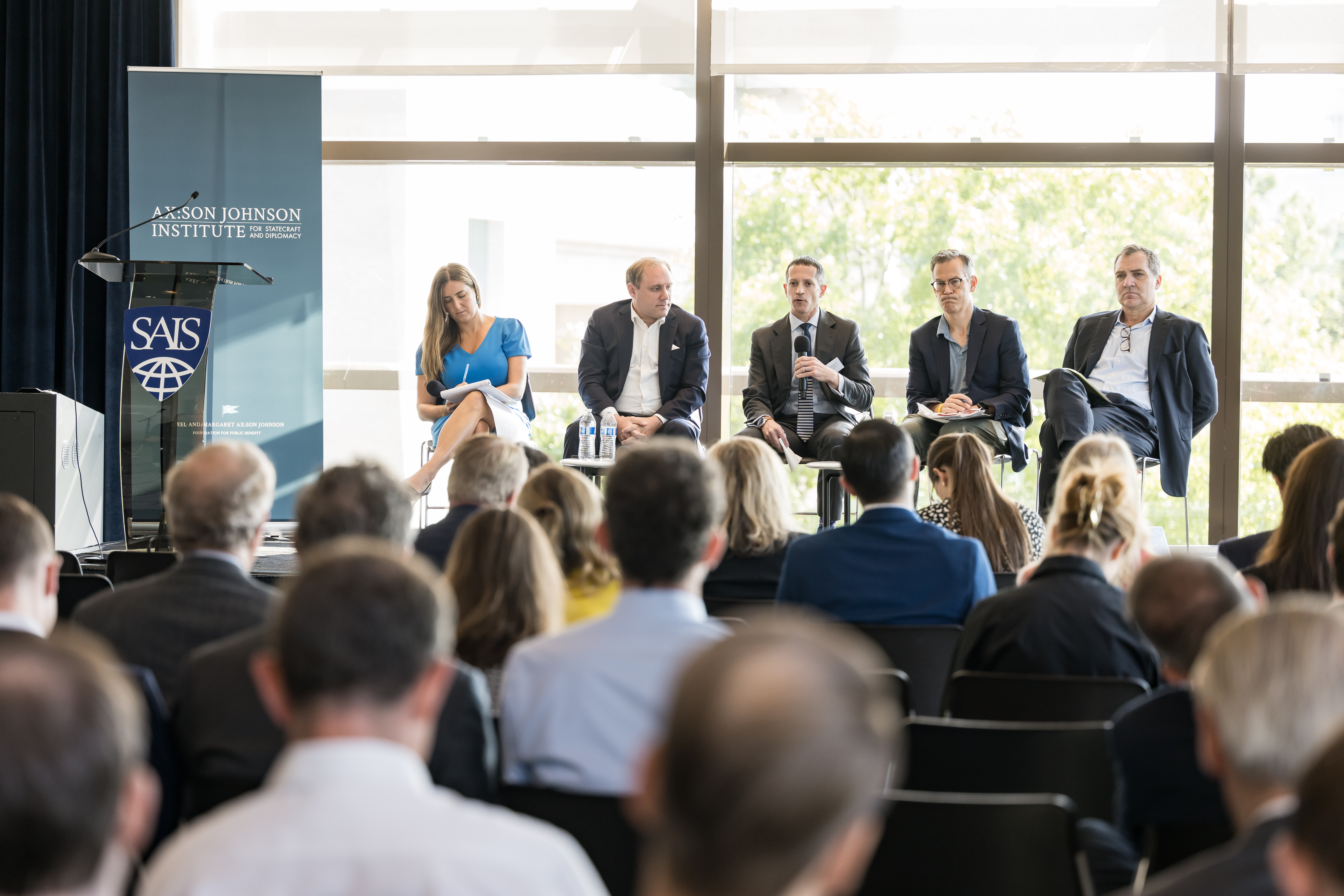
Speakers left to right for the panel on Statecraft and Technology, Old and New: Olga Belogolva (SAIS), Dmitri Alperovitch (Silverado Policy Accelerator), Michael Horowitz (Perry World House at Penn), Colin Kahl (Stanford), and Richard Falkenrath (Council on Foreign Relations). One topic discussed was one of Dr. Kissinger's final books:The Age of AI and Our Human Future. Dr. Kissinger visited the Kissinger Center and Johns Hopkins SAIS in December 2021 to host a conversation on his book.

This theme carried over to a panel on the Future of Europe in War and Peace, with Prof. Marine Henke (visiting SAIS from the Hertie School in Berlin), Dr. Alina Polyakova (Center for European Policy Analysis), Dr. Justin Vaïsse (Paris Peace Forum), and Iain Martin (Engelsberg Ideas).
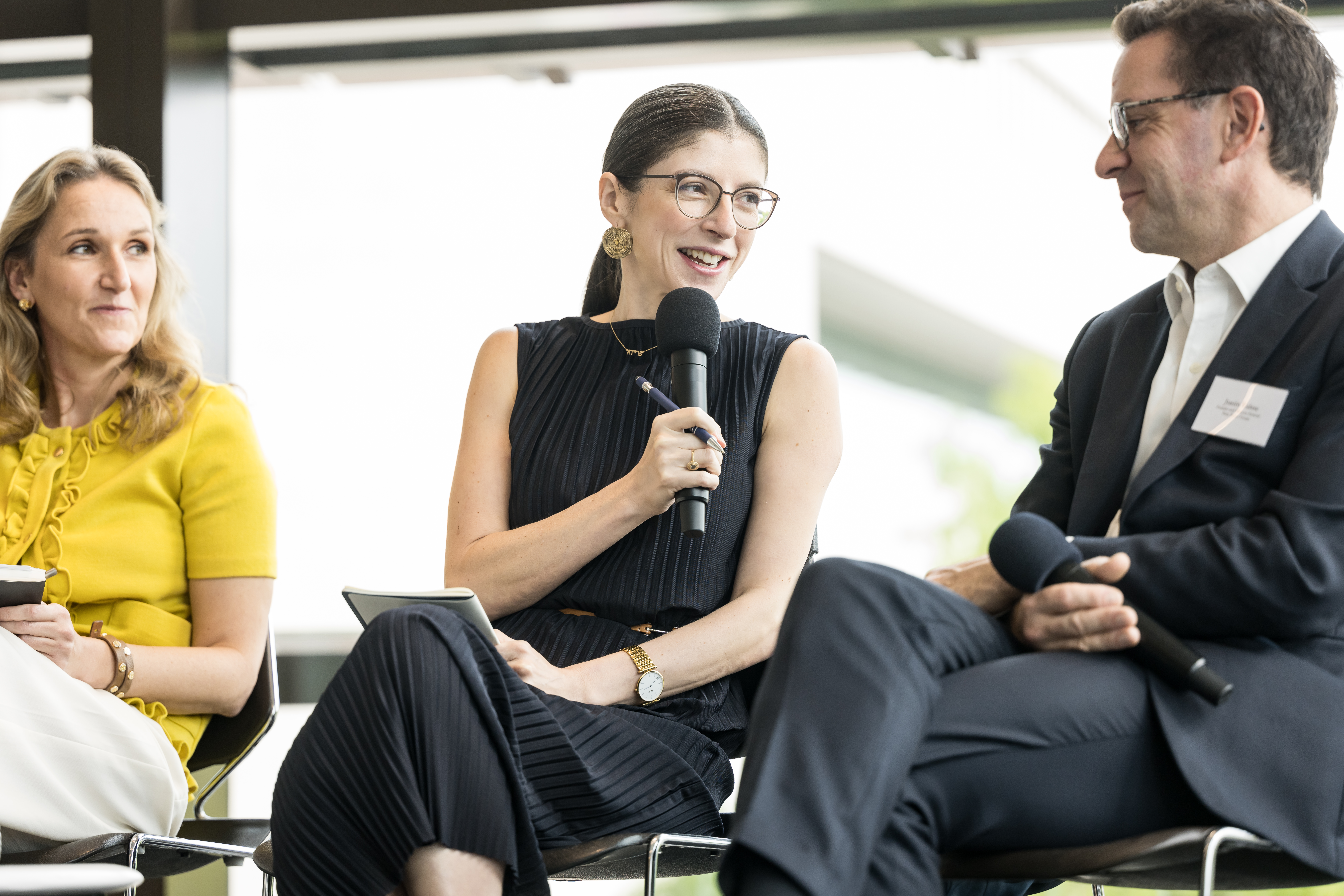
Speakers left to right: Marina Henke (Hertie School), Alina Polyakova (Center for European Policy Analysis), Justin Vaisse (Paris Peace Forum). Professor Henke is currently a distinguished visiting professor at the Kissinger Center as part of the DAAD Helmut Schmidt Distinguished Visiting Chair program. The program supports Professor Henke and two postdoctoral fellows to conduct research and engage wider audiences in the themes of the role of Germany and Europe and the future of world order.
In the final panel, on China, the United States, and the Future of World Order, Dr. Elizabeth Economy (Hoover Institution), Ambassador Shivshankar Menon (Ashoka University), and SAIS Professors Jessica Chen Weiss and Sergey Radchenko. The panel discussed a wide range of possible strategies towards China for the U.S. and its allies.
Sergey Radchenko (SAIS) speaks in the final panel
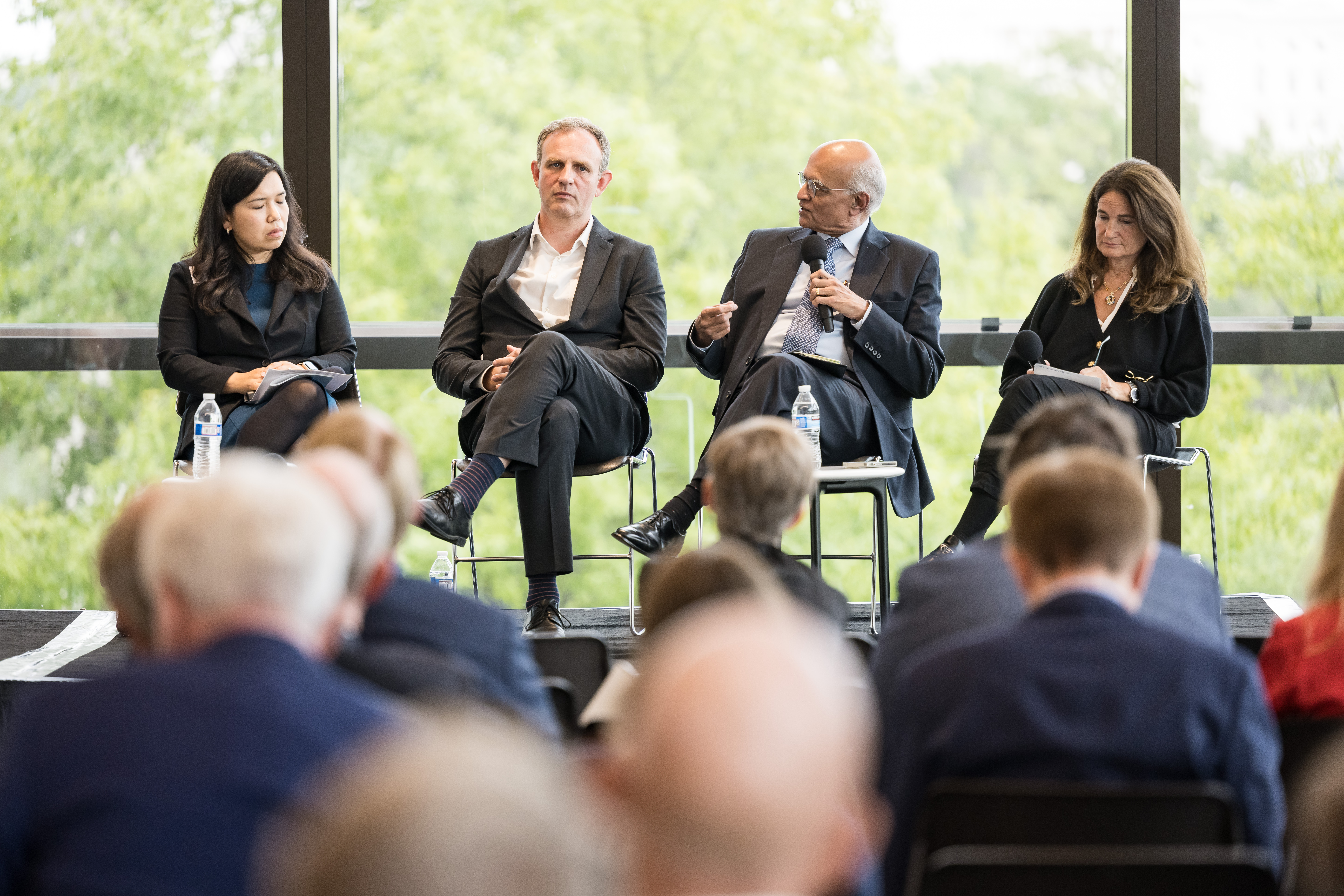
From left to right, the final panel of the conference: Jessica Chen-Weiss (SAIS), Shivshankar Menon (Ashoka University), Sergey Radchenko (SAIS) and Elizabeth Economy (Stanford)
The Kissinger Center and Johns Hopkins SAIS are grateful to all moderators, panelists, speakers, and attendees for coming to share their thoughts on history, world order, and the most important issues we face in the coming era.
